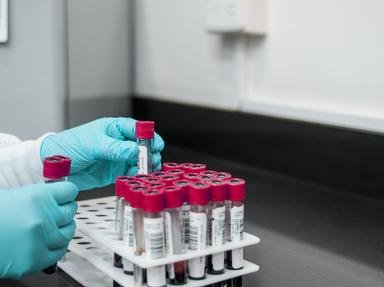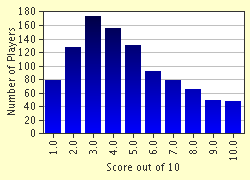Quiz Answer Key and Fun Facts
1. Which of the following types of reactions involves R-X, Li, CuI, and R'-X?
2. In the type of reaction involving R-X, Li, CuI, and {R'-X?;} R'-X must NOT be which of the following?
3. Grignard reagents react with ketones to form which of the following?
4. Which of the following is a Huckel number?
5. Which of the following are reagents used in the nitration of benzene?
6. Which of the following is NOT associated with oxidation?
7. Which of the following will reduce an aldehyde but not a carboxylic acid?
8. If branching of the side chain in the product is a problem in Friedel-Crafts alkylation, how can a product with an unbranched side chain be reached?
9. A methyl group on benzene is considered which of the following?
10. When an alcohol is exposed to an acid, what is the first thing that always happens?
Source: Author
karen_rx
This quiz was reviewed by FunTrivia editor
crisw before going online.
Any errors found in FunTrivia content are routinely corrected through our feedback system.

